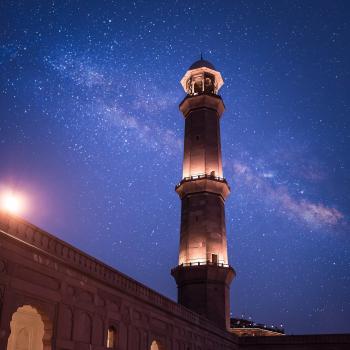“If fasting was simply about feeling like the poor and hungry, then Allah would not make the poor and hungry fast.” -Sheikh Muhammad al-Shaarawy
As I grew up, I had a series of default answers to the question, “Why do Muslims fast (in Ramadan)?” When I was very young, I would tell my classmates that we do it so that we’ll feel the pain of poor people who don’t have enough to eat. As I grew a little older, my answer changed with my understanding of this religious requirement, and I used to tell my peers that we fast to learn self-control.
While the latter may be closer to the truth, neither of these simplistic reasons are enough to totally encompass the purpose of fasting in Ramadan. Many of us know (or have been taught at some point) why we fast, but when we’ve been holding back from eating or drinking anything for fifteen plus hours, or we have been doing it for about thirty days every year since we were children, remembering this reason can become a bit difficult. Sometimes, fasting can start to feel like more of a cultural routine. Another Ramadan, another month of hungry days and sleepy suhoors. Taraweeh, unhealthy cultural foods, and religious social media posts. Free iftaars at the masjid, and awkward lunch breaks at school or work. The expected “date” jokes.
Sometimes, fasting can start to feel like more of a cultural routine.
All of these things create a special, but sometimes shallow, Ramadan Culture. We feel the religious vibe in the air, but might not think more deeply about why we’re fasting in the first place.
“Those of you who have imaan, fasting has been written upon you as Law, just as it was written on those who came much before you, so that you may attain taqwa (become cautious of Allah)… The month of Ramadan is the one in which the Qur’an was sent down- a guidance for all people, and there are clear proofs that it is guidance and a distinguisher between right and wrong. Whoever among you witnesses the month, he should fast all of it, and whoever had been sick or was in the middle of a journey, then he has to make it up in other days. Allah wants ease for you, and He doesn’t want difficulty for you. And [He gave you this] so you can complete the account, and so you can declare the Greatness of Allah, based on how He guided you, and so that, hopefully, you’ll become grateful” (Qur’an 2:184-185).
We fast so that we will remind ourselves that no temptation in this life is worth sacrificing the Next Life for.
Here, Allah highlights both the significance of fasting, and that of Ramadan itself. Ramadan is the month of the Qur’an: reading and reciting it, listening to it and out of prayer, memorizing it, and reflecting and acting upon it. The purpose of fasting is to achieve a spiritual state of taqwa: being cautious of Allah, in the sense that we fear disobeying and disappointing Him, and try our best to please Him and remember Him in all of our actions. One of the best ways to attain taqwa is through the Qur’an, so in combing both fasting and the blessings of the month of Ramadan, this becomes easier than ever.
We fast so that we will remember that our days are His, not just ours. So that when we say we can’t do something, we remember that we can. So that we will learn to sacrifice our time, energy, desires, and resources for Allah. So that we might turn to the Qur’an more often than we usually do, with sincerity, seeking guidance. So that we will remind ourselves that no temptation in this life is worth sacrificing the Next Life for.
We fast so that we will remember that our days are His, not just ours.
May Allah make each Ramadan better than the last for us, and help us realize and remember why we fast every day, ameen.












